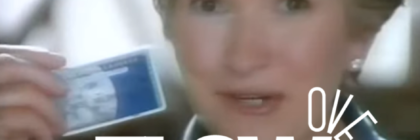
Texas in Close-Up: Exploring the Lone Star State’s Media Ecosystem
Alisa Perren / University of Texas at Austin
Alisa Perren welcomes readers to Flow’s Special Issue on the Texas media industries by describing the complexities of defining and building a media industry at the state and local level.
Read moreBuilding the Television Network: AT&T’s Southwest Extension and the Fort Worth Rodeo
Selena Dickey / Furman University
Selena Dickey argues that the growth of nationwide, synchronous television service was a much more contingent, incremental, and local process than most media historians have previously acknowledged.
Read moreThe Vanishing of Public Media
Deborah L. Jaramillo / Boston University
Deborah L. Jaramillo documents the trials and tribulations of KMBH, the only (and now defunct) public broadcaster in the Rio Grande Valley.
Read moreThrive and Elevate: Austin’s DEI Arts Funding and the Film Festivals it Supports
Hannah Wold / University of Texas at Austin
Hannah Wold investigates the results of the City of Austin’s new DEI-aligned arts grant system on Austin’s film nonprofits.
Read more“Where the West Begins”: Taylor Sheridan and the Branding of a City
Kimberly A. Owczarski / Texas Christian University
Kimberly A. Owczarski analyzes Taylor Sheridan’s effect on Fort Worth’s media production industry.
Read moreThe “Third Coast”: The Ebbs and Flows of Dallas’ Aspirations as a Production Hub
Jennifer Porst / Emory University
Jennifer Porst charts the challenges and benefits of establishing media production hub cities.
Read more“SWELCE” and “HEAT WENTZ”: The Politics, Para-sociality, and Pairing of Sports and Popular Music
Francesca Sobande / Cardiff University & Jenessa Williams / The University of Leeds
Francesca Sobande and Jenessa Williams explore the intersections of sports and popular music, highlighting the dynamics of celebrity culture, para-social relationships, and the impact of these pairings on cultural politics. Examples include the relationship between Taylor Swift and NFL player Travis Kelce and the presence of NBA player Jimmy Butler in a Fall Out Boy music video, illustrating how these cross-industry connections influence marketing, fan engagement, and cultural representation.
Read moreWhy Being A ‘Netflix Nation’ Matters – And To Whom
Georgia Aitaki / Karlstad University
Georgia Aitaki examines Netflix’s glocalization initiative and the company’s development of Greek original programming.
Read moreAre two heads better than one? Creative collaborations and job sharing in the media industries
Eva Novrup Redvall / University of Copenhagen
Eva Novrup Redvall considers how directors and other industry professionals collaborate through job sharing in the film and television industries.
Read moreHow to Measure Buzz? OTT Data Sets and Media Audiences in India
Ishita Tiwary / Concordia University
Ishita Tiwari examines how India’s leading media consulting firm, Ormax Media, measures the popularity of the country’s OTT platform content.
Read moreThere Is Something Wrong With Falling In Love: K-Pop Idols, Romance, And The Toxic K-Pop Industry
Jungmin Kwon / Portland State University
Jungmin Kwon looks at K-pop idols and the way that dating is seen as a sin that requires forgiveness. She argues that this stems from the K-pop industry’s toxic business model, and investigates the relationship between idols, fans, and the industry.
Read moreRyan Gosling Brings the Kenergy, Or Barbie’s Night Out at the Oscars
Courtney Brannon Donoghue / University of North Texas
Courtney Brannon Donoghue considers gender (and race) at the Oscars through the lens of Barbie’s Oscar “snubs.”
Read more























